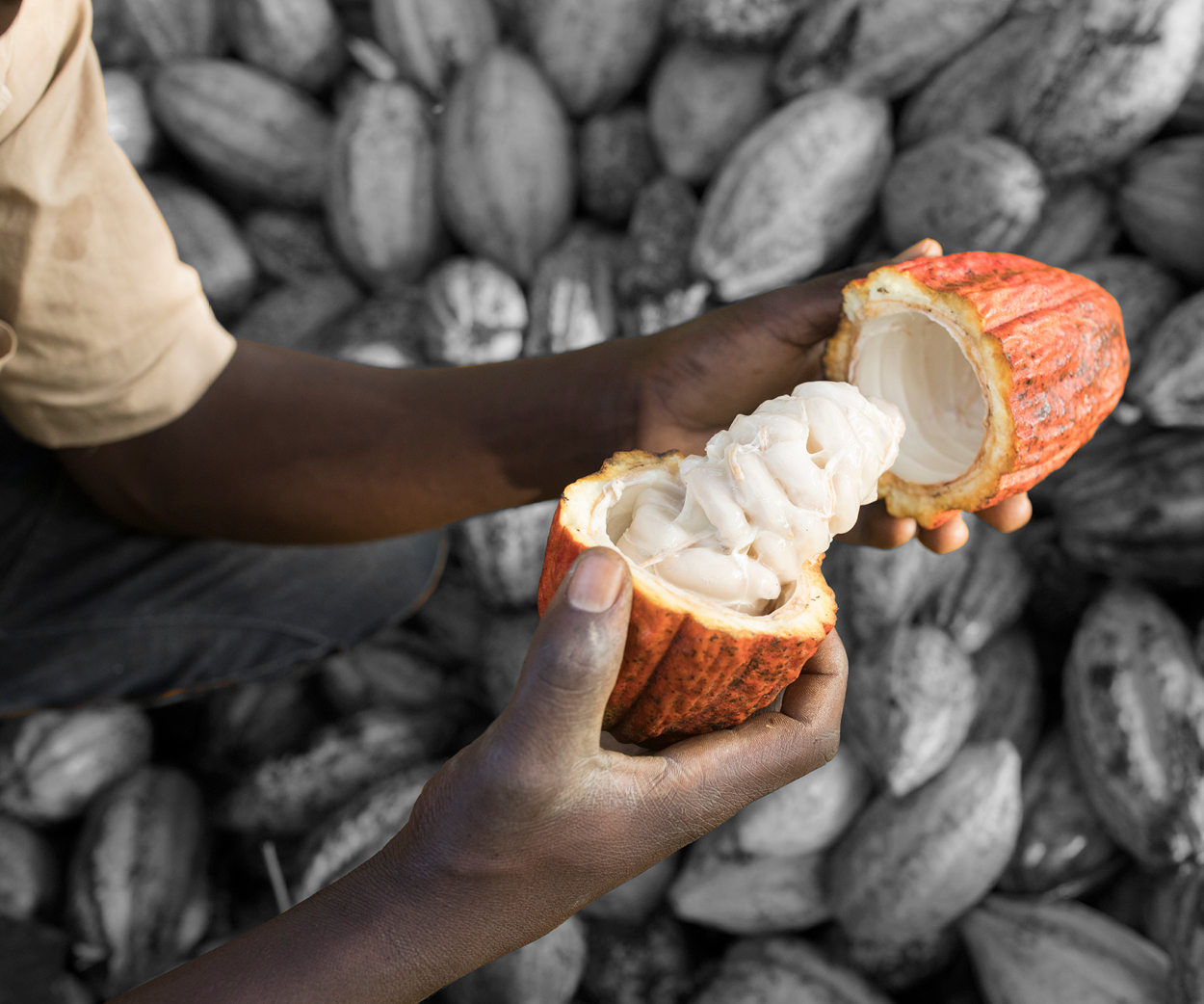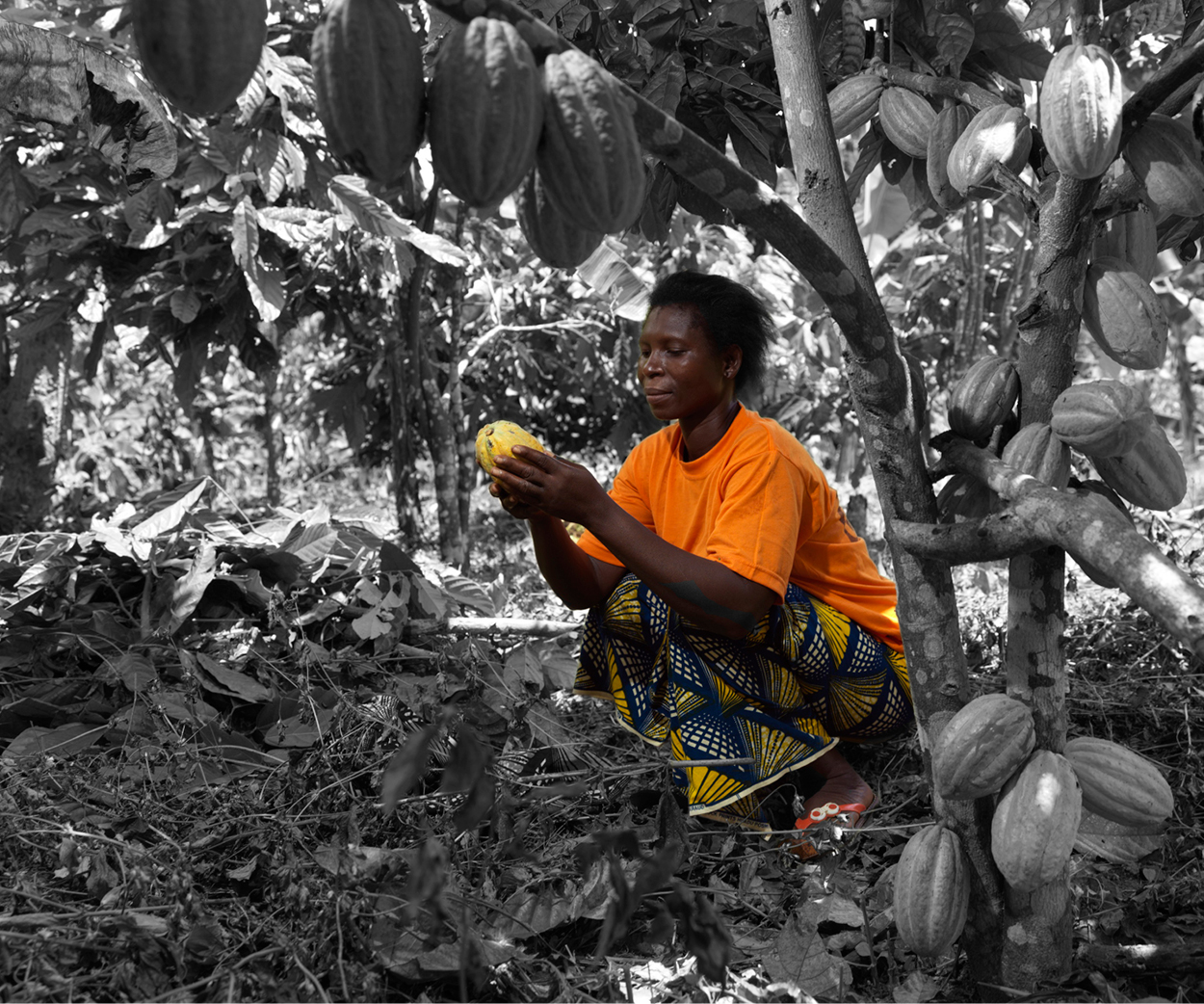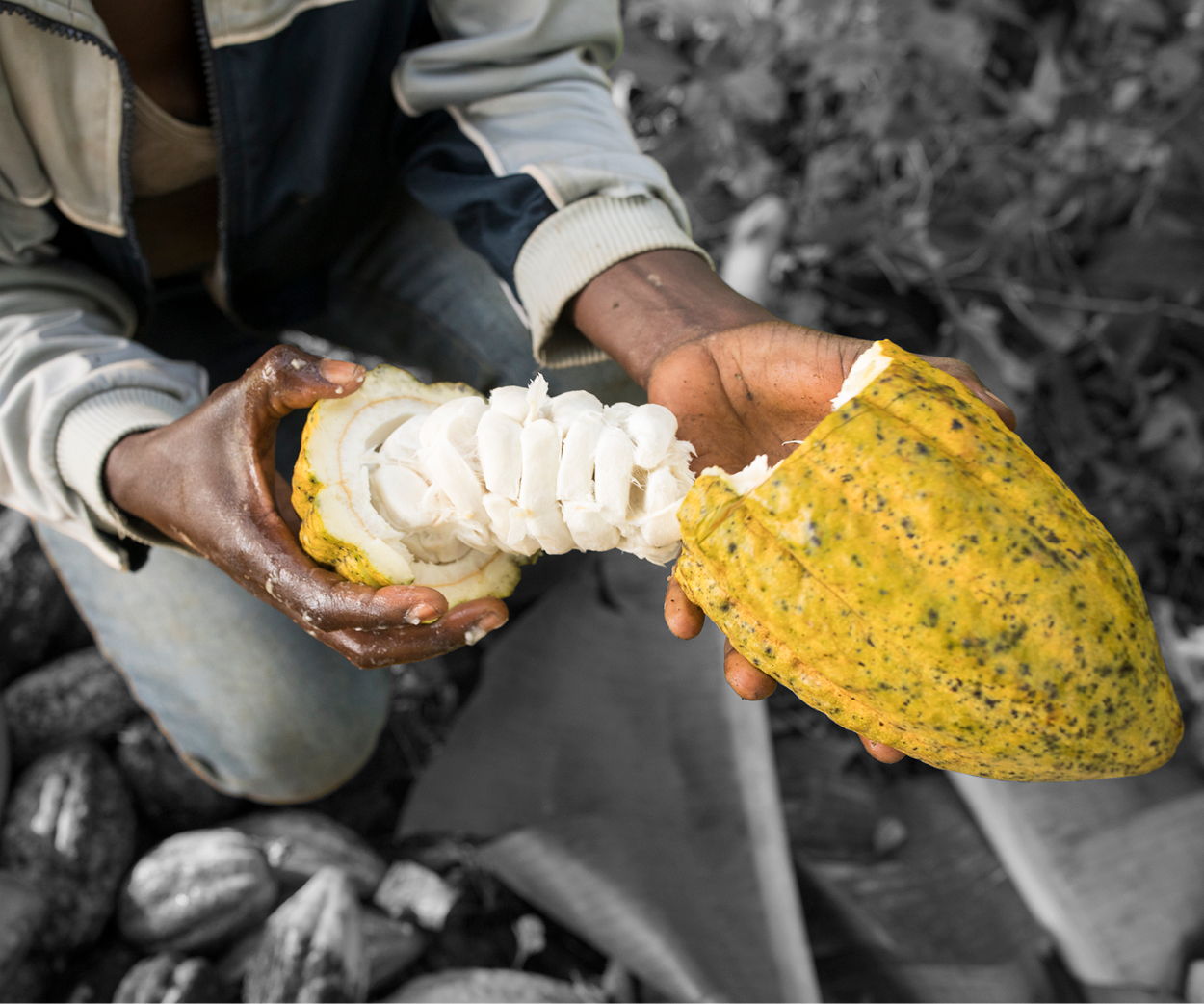We consume more chocolate in the UK than anywhere else in the world, with the average brit enjoying the equivalent of 11kg of chocolate per week. But did you know that over two-thirds of chocolate consumed includes beans from West Africa, and the farmers who produce the raw material remain at the mercy of an industry that has an eye on price, and is a slave to margin?
Cocoa prices have slumped by 30 per cent to hit a 10-year low, leaving many farmers existing on far less than the living wage. With farmers facing another year of hardship, earlier this year government bodies in Côte d’Ivoire and Ghana threatened to stop their cocoa supply should they not meet a minimum price of over $2,600 US per tonne. Although the two governments receive a fixed price premium of $400 above the predetermined Cocoa Futures contract price, the situation remains unstable as this price fluctuates daily.
Farmers growing Fairtrade cocoa will benefit from a more stable income. These producers will continue to be protected by the Fairtrade International Minimum Price of $2,400 per metric tonne – this means that, despite any market volatility, they will never receive less than this at the point of export.

Ethical investment organisation Shared Interest, that provides fair finance to businesses that follow Fair Trade Principles, has witnessed continuing uncertainty amongst farmers in the region, despite this latest government agreement. Shared Interest lending manager for West Africa, John Dossou said: “Most of the Ghana and Côte d’Ivoire cocoa producers we spoke to have welcomed the good news. They hope that the fixed premium will be used to address the issues in cocoa farming communities in the region. However, some of them are sceptical about how much of the increase is actually going to affect the producer price.”
As the increased market price has proved to have an impact on public consumption in the past, there may be consequences for farmers in the longer term. For example, in 2015 cocoa consumption slumped after the market price rose to $3,000 per tonne. Sadly, it seems like a no-win situation for cocoa producers who currently only receive about 6 per cent of the value of the global chocolate industry.
There are environmental consequences for cocoa farmers, too. People living in West Africa have very little choice of commodities to sell, and deforestation is taking place on a grand scale as some farmers turn to illegal production to benefit from cocoa’s growing demand. The spread of unlawful plantations has caused devastation as farmers move into national parks and protected areas to grow their crop.










